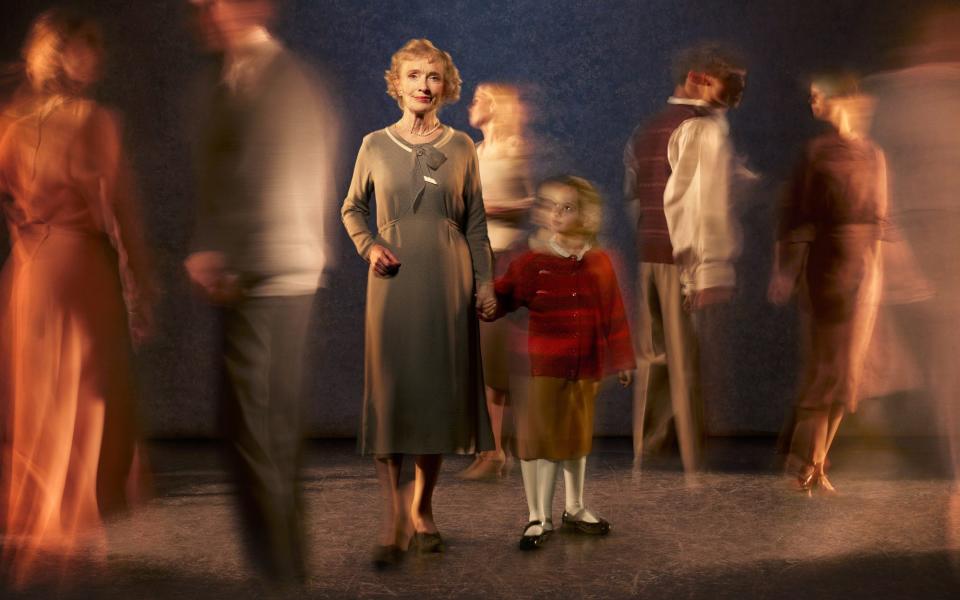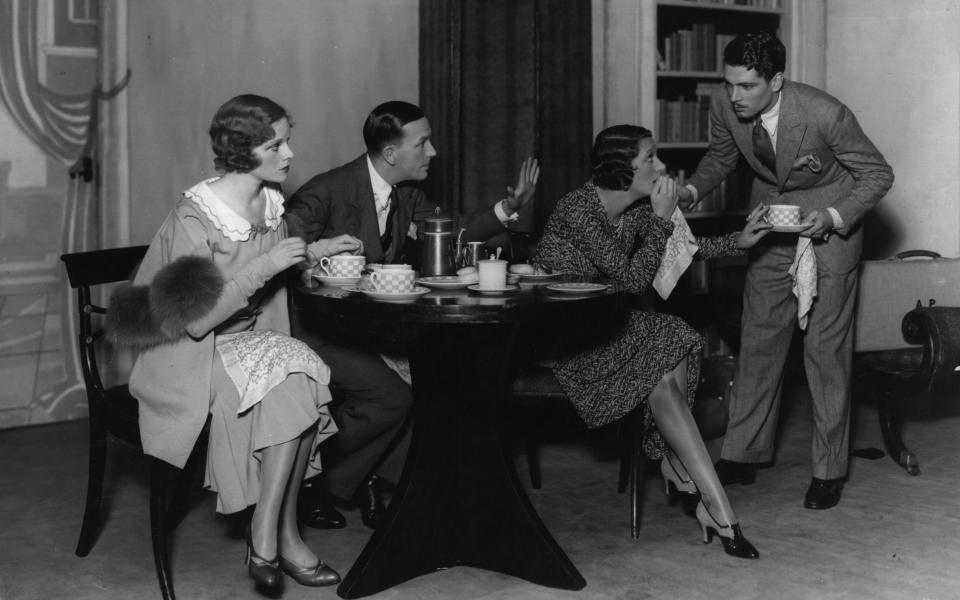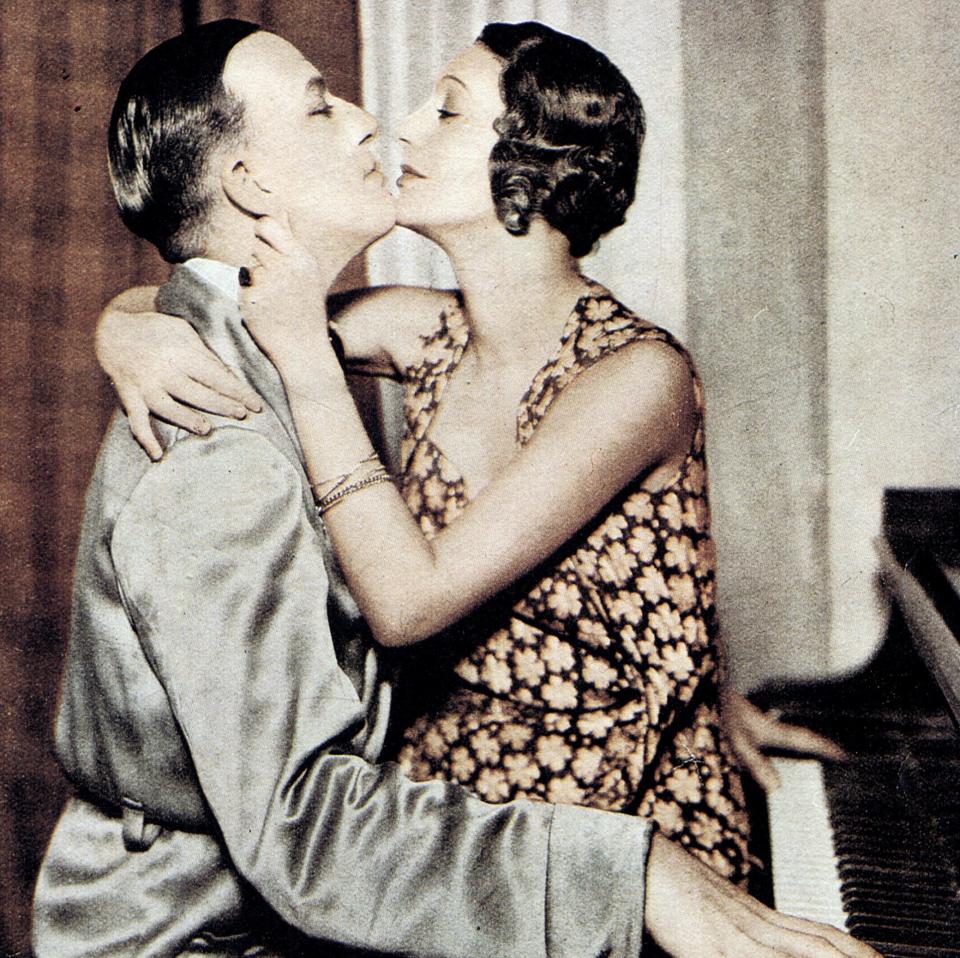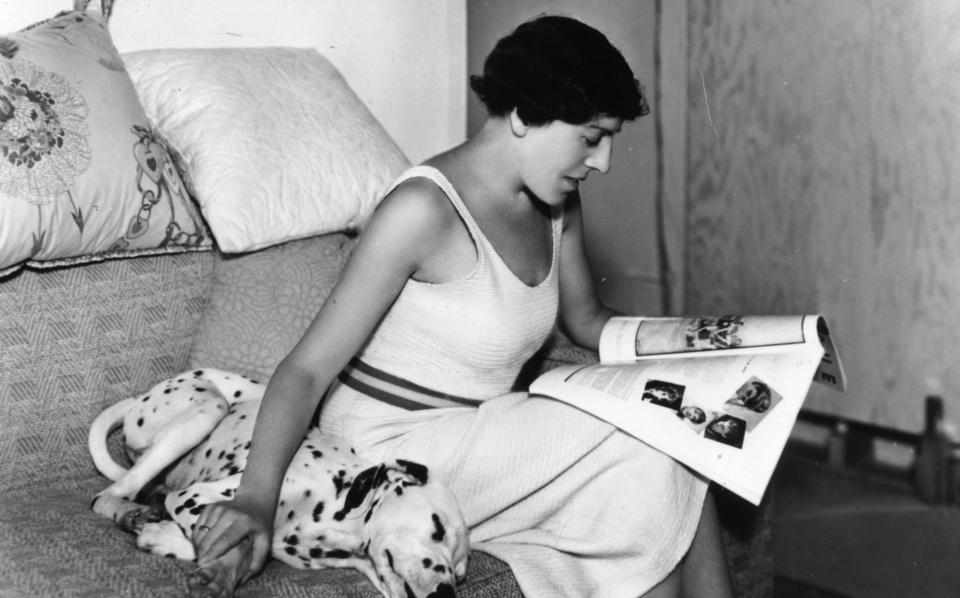Unveiled against the backdrop of Hitler’s maneuvers in the Sudetenland in Czechoslovakia, the opening night of Dodie Smith’s Dear Octopus at the Queen’s Theater on September 14, 1938 was unlike almost any other West End premiere before or after.
Its theme couldn’t have been further from the gathering clouds of war (it centered on a family gathering for a golden wedding anniversary at a country house), but that somber shadow crept into the auditorium. As Valerie Grove wrote in her biography of Smith, later credited as the author of The Hundred and One Dalmatians: “For the first half the house was quiet, the faces serious and the laughter few… Then, in the first interval, [a critic] It came… with the news, which spread like wildfire through the theater, that Chamberlain was flying to meet Hitler in Berchtesgaden… It was as if the entire audience breathed a sigh of relief. From there the work was great.”
The rest is catastrophic history. And it was as if when the curtain fell on the play in 1940, a shroud covered the dramatic production of the 1930s. Few remember the success of Dear Octopus or that Smith was one of the most praised playwrights of the 1930s. Or, even more so, that female playwrights (including Clemence Dane, Molly Keane and Elizabeth MacKintosh) were a force to be reckoned with.
If “interwar” theater tends to be mistakenly grouped together as something homogeneous, the drama of the 1930s is often presented, if at all, as conservative, frivolous and domestic. A casual observer could be forgiven for thinking that the 1930s begin with Noël Coward’s Private Lives (1930) and end with Present Laughter (1939), with little in between. There is a perception, to borrow a phrase or two from Coward’s biographer Oliver Soden, of “anyone for tennis” and “terribly middle-class” concerns. That is only partially correct.
Perhaps the main obstacle to admiration is our own (inverted) snobbery. The middle-class setting and articulation of many works from this era – marked by the economic depression that followed the Wall Street crash – became problematic after the “kitchen sink” revolution of the 1950s, and To this day we go back a little, to the 1930s. revivals few and far between. The upcoming staging of Dear Octopus at the National is its first revival since its West End run in 1967.


However, it is notable how daring much of this seemingly conservative theater actually was. In his expression of bubbling anxiety in the face of accelerated modernity and foreign threat, he speaks eloquently of his own time and reaches ours with its similar fear.
There was experimentation within drawing room comedies, most notably in JB Priestley’s time-slip dramas, in which he looked at characters across decades (Time and the Conways) or, more daringly, in Dangerous Corner, he created a sensation by Sliding Doors with radically divergent results. And as for Coward, he gave us a play about a bisexual love triangle (Design for Living) that initially couldn’t be staged in Britain, Post-Mortem (imagining the ghost of a dying World War I soldier) and the short – Sequence of works Tonight at 8.30, one of which, the hallucinatory marital musical Shadow Play, is perhaps the most avant-garde thing he wrote.
Sometimes the experimentation seemed disappointing. Although TS Eliot was a poetic titan, his cerebral mission to convert a public skeptical to the value of verse drama (and also Christianity) in works such as Murder in the Cathedral (1935) has an unpleasant elevation. Auden and Isherwood’s dramatic adventures have their moments, but they suffer from a wayward quality as they bravely wrestle with England’s confused idea of itself.


If we obsess over forgotten masterpieces and forgotten dramatic geniuses, we are losing. We might brag about Somerset Maugham, but the Spanish produced Lorca. Yes, we had Priestley, but the Americans had O’Neill. Bernard Shaw was declining while Brecht was rising. But if many of the works of this era are approached with respectful curiosity, a talent to fascinate will be revealed.
Take Dear Octopus, which derives its title from a final, grudging and affectionate observation about the institution of the family (“that dear octopus from whose tentacles we never quite escape nor, in the depths of our hearts, ever wish to do it”).
Yes, it has an “old-fashioned” veneer: a lot of middle-class conversation and little ostensible plot, in a Chekhovian key. But Emily Burns, director of National Revival (starring Lindsay Duncan as the elderly matriarch Dora), asks us to look closer. “Smith received much praise from his contemporaries precisely for this skill; other writers recognized his delicacy and his artistry. “There is also something radical about staging a world as domestic as this, at a time when there are all sorts of dismissive preconceptions about what women’s writing is going to be about.”


For director Tom Littler, who has just transferred Sheridan’s 1770 drama She Stoops to Conquer to the Thirties to the Orange Tree, Richmond, we underestimate these plays to our detriment. “What fascinates me about the works of this period is the amount of things that lie beneath the surface. The social form limits the way people can express themselves, but when it comes to light, it can be shocking, violent and passionate. If a character says ‘I never liked you,’ it can be explosive.”
Littler sees the blending of different generations in a decade as particularly ripe for drama. “If you have an older person in the 1930s, they are from the mid-Victorian era. They can be compared with those who lived through the First World War, and also with those born at the beginning of the century, who narrowly missed the war, and with those who grew up afterwards and will face the Second World War.”
That dynamic prevails in Dear Octopus and exists to some extent in Terence Rattigan’s After the Dance (1939), a portrait of a failed marriage between two brilliant young people, where affected joy is still in play but suicidal despair lurks at the door. . Thea Sharrock successfully revived it at the National in 2010, with a cast led by Benedict Cumberbatch and Nancy Carroll. “I would go into a rehearsal room to direct it again in the blink of an eye,” she tells me. “It captures a particular intensity, which is not just the imminent return of global conflict, but the fact of having been too young to die for one’s country before and now considered too old, somewhere between two and two, somehow at the time.” wrong and feeling superfluous.”


What is surprising is the frequency with which group portraits are attempted. Dodie Smith’s previous hit, Service (1932), was set in a department store facing the recession. In London Wall (1931), John van Druten exploited the tragicomedy of secretaries and typists who slaved in a law firm. Rodney Ackland’s Strange Orchestra (1932) brought together bohemians in a boarding house.
The lingering question seems to be: What makes us – an “island race,” individuals at sea in an era of mass social organization – “us”? As the assembled family members chant in Eliot’s The Family Reunion (1939), “Why do we feel ashamed, impatient, uneasy, uncomfortable/Gathered like amateur actors who have not been assigned their parts?” It is a concern that resonates today.
There are clearly points of artistic connection between some works now approaching their centenary and more recent efforts. Did we not detect the influence of The Family Reunion, with its haunting country house as a grim symbol of England itself, on Alan Bennett’s People, a comedy about a stately home with implications for the state of the nation? Arguably the impact of Priestley’s time shifts is felt in Tom Stoppard’s Arcadia and Nick Payne’s Constellations. The satirical World War I musical Oh What a Lovely War! owes some debt to Coward’s song-filled Cavalcade (1931), a morale-boosting epic that traces a family’s fortune from the Victorian era to the Great War and beyond.
Despite appearances, the 1930s drama was much more of an enduring touchstone for postwar drama than a quaint dead end. And the most compelling reason to urgently renew knowledge of those past works is the clear and chilling parallel of anguish-ridden circumstances.
Dear Octopus runs at the National’s Lyttelton Theater from February 7 to March 27; nationaltheatre.org.uk; Masquerade is published by Weidenfeld & Nicolson.